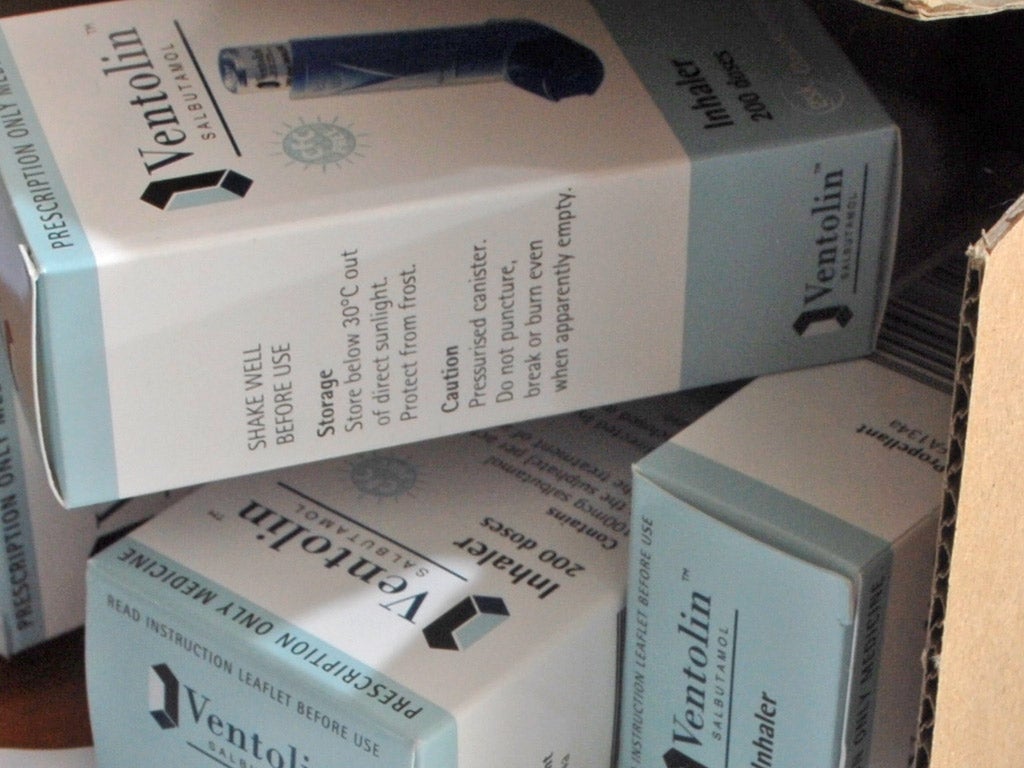Freeze on drug prices will save NHS £1bn over next two years
Money-saving deal goes through despite opposition from pharmaceutical companies

The NHS is set to save more than £1bn over the next two years thanks to a deal struck with drug companies to freeze the amount the health service spends on the most expensive drugs.
Branded medicines cost the health service £12bn last year and price rises have seen costs rise by five per cent annually, putting huge demands on stretched NHS budgets.
But under a new five-year deal, which has been staunchly opposed by some drug companies, NHS spending on patented medicines will remain flat for two years, followed by small increases of just under two per cent over the following three years – with drug companies paying back any costs above this level.
The Government hailed the deal as a “breakthrough” which would increase the availability of the best medicines without incurring out-of-control costs to the taxpayer.
But pharmaceutical companies said the move would scare away investment in British medicines research, leading to patients “missing out” on the latest treatments.
The deal, which was negotiated by the Department of Health on behalf of the national health services in England, Scotland, Wales and Northern Ireland, applies to branded medicines – those which are patented to one company and therefore usually the most expensive.
A Department of Health spokesperson said that all money paid back by drug companies would be divided between the four national health services.
Popular drugs such as GlaxoSmithKline’s asthma treatments Ventolin and Seretide, and Roche’s cancer drug Mabthera, will be covered by the deal.
The agreement comes after many months of negotiating, described by the Association of the British Pharmaceutical Industry (ABPI) as the “most complex” ever held with the British government. It follows crackdowns in other countries on the spiralling costs of drugs, which governments fear are crippling recession-hit healthcare systems.
However, despite agreeing to the payment freeze, the ABPI said that negotiations had been “built on a myth that medicines are expensive in the UK”, arguing that prices were among the lowest in Europe.
The deal is voluntary and drug companies that do not sign up will be hit with a statutory 15 per cent price cut on their medicines. The statutory scheme will impact around 10 per cent of branded medicines used in the UK.
Drug company Pfizer claimed the deal was “damaging… for all those concerned, but most notably for UK patients.”
“This Government price cut alongside the on-going issues in assessing medicines for NHS use sends a clear message that innovation is not truly valued or supported. Whilst the UK Government wants new medicines to be researched and developed here, it is not prepared to pay for the life changing and life-saving medicines that result from this investment. In today’s competitive global economy such a stance sends the wrong signal for potential future decisions,” the company said in a statement.
The health secretary Jeremy Hunt said: “This agreement ensures NHS patients will receive the best and most advanced medicines in the world while managing the cost.
“UK pharmaceutical companies have responded to the challenges we face as a country, both in terms of the increased demand for medicines and pressure on public spending. I hope in return we have given them the certainty and backing they need to flourish as a sector both here and in the global market.”
Subscribe to Independent Premium to bookmark this article
Want to bookmark your favourite articles and stories to read or reference later? Start your Independent Premium subscription today.

Join our commenting forum
Join thought-provoking conversations, follow other Independent readers and see their replies